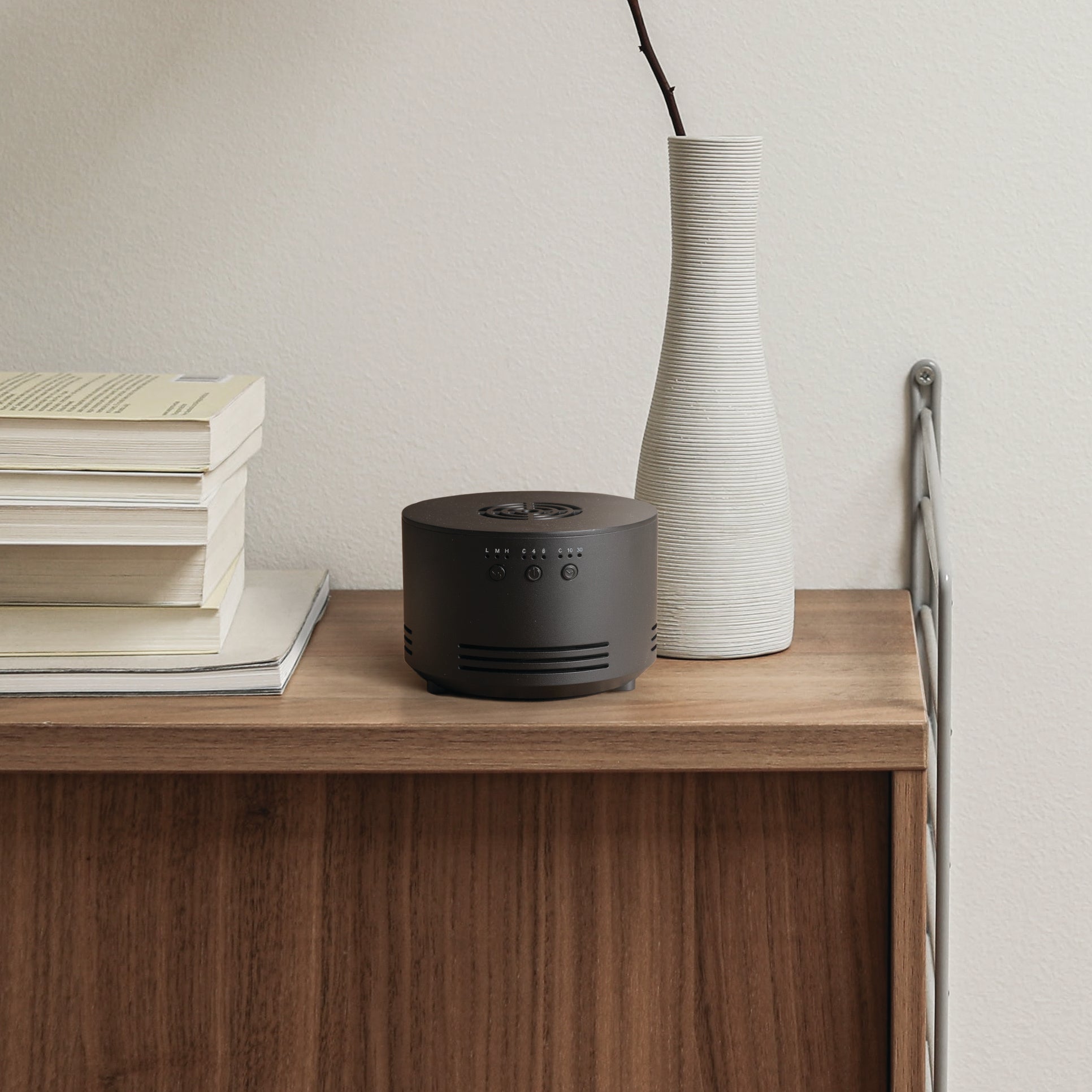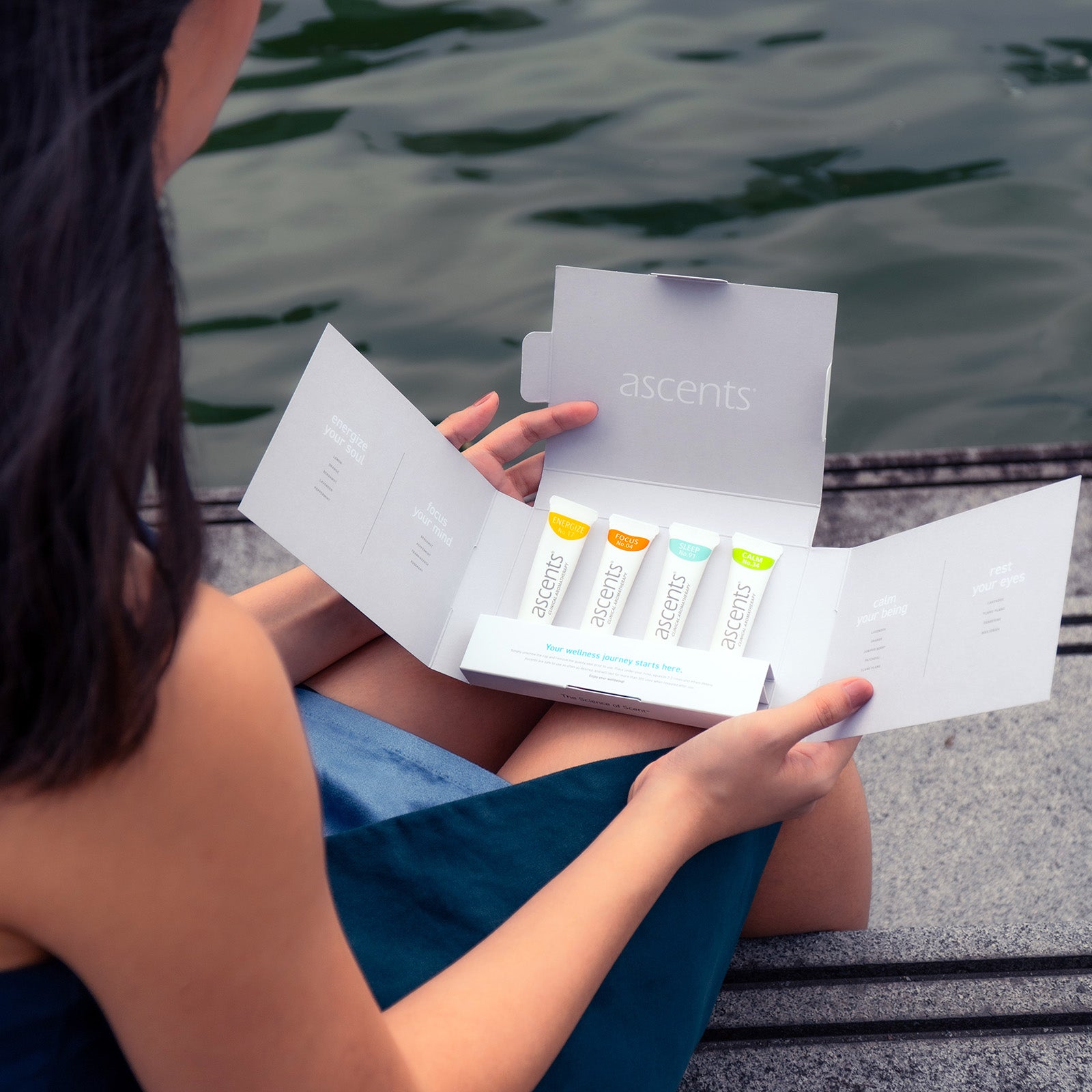How Ascents Clinical Aromatherapy Was Used to Reduce Nausea and Anxiety* in Cancer Patients Undergoing Chemotherapy Infusion at Moffitt Cancer Center
Quick Summary
H. Lee Moffitt Cancer Center tested Ascents personal inhalers in two different clinical aromatherapy formulas across four chemotherapy infusion centers for reductions in nausea and anxiety in cancer patients. Patients across all four centers experienced highly significant, consistent, long-term reductions of both symptom sets.
About H. Lee Moffitt Cancer Center
H. Lee Moffitt Cancer Center & Research Institute is a nonprofit cancer treatment and research center located in Tampa, Florida. It is widely considered to be one of the top cancer treatment and research hospitals in the United States and internationally.
About Aeroscena®
Aeroscena is the corporate research and development organization behind Ascents-brand clinical aromatherapy. Aeroscena has developed the first scientifically-recognized platform for essential oils R&D, including clinical studies.
Overview
Moffitt Cancer Center approached Aeroscena to participate in a pilot study examining the effect of Ascents aromatherapy on the reduction of self-reported anxiety and nausea in cancer patients undergoing chemotherapy infusion.
The Problem
Both nausea and anxiety are considered major side effects of chemotherapy treatment, which can ultimately lessen its positive effects and contribute to poorer patient outcomes.
Often the drugs used to mitigate these symptoms have their own side effects, leading to a cycle of drug use aimed at controlling both the effects of the conditions, as well as the side effects of the medications. Aromatherapy is a non-drug alternative intervention with the potential to reduce many of these symptoms without side effects.
Why Ascents Clinical Aromatherapy?
Aeroscena’s Ascents inhaler sachets were chosen for the study after their successful use under non-study conditions for the reduction of nausea and anxiety in Moffitt’s chemotherapy infusion centers. This created an interest in documenting these successes formally in order to better understand and degree of magnitude of these positive effects across facilities and over time.
Additionally, the inhalers offer ease of use, consistent dosing, a high safety profile and rigorous quality standards, as well as an extremely low probability for cross-contamination or allergic reactions, all of which are necessary in clinical settings.
Ascents Products + Formulas Chosen for the Study
The following Ascents personal inhaler sachets were chosen for the study:
Study Aims
The aim of the study was to better understand the efficacy of aromatherapy. If found to be effective, it could then be used as a potential adjunct to replace or reduce the use of certain comfort care drug interventions, such as tranquilizers or antiemetics, some of which have undesirable side effects or are contraindicated when used with other, essential medications.
Study Protocol
Cancer patients were surveyed pre-chemotherapy treatment for self-reported anxiety and/or nausea. Those who reported symptoms were enrolled in the study. The same patients were offered Ascents inhalers in Calm and/or Nausea Relief formulas for use during their chemotherapy infusion treatment.
Patients who accepted aromatherapy then self-administered the inhalers as needed during their treatment session. Post-treatment, patients completed short surveys documenting their levels of nausea and anxiety.
The Result
Patients reported a 50% average reduction of both nausea and anxiety with the use of Ascents aromatherapy inhalers. The average level of reduction of both conditions was maintained over the entire 5-month course of chemotherapy infusion treatment across all four participating centers.
The Conclusion
Based on the study’s strong, positive results, Moffitt concluded that the Ascents aromatherapy formulas and inhalers represented a feasible, implementable intervention for reducing anxiety and nausea in cancer patients undergoing chemotherapy infusion. The results will be reported in a paper to be presented at the Oncological Nursing Society's next in-person annual meeting.





